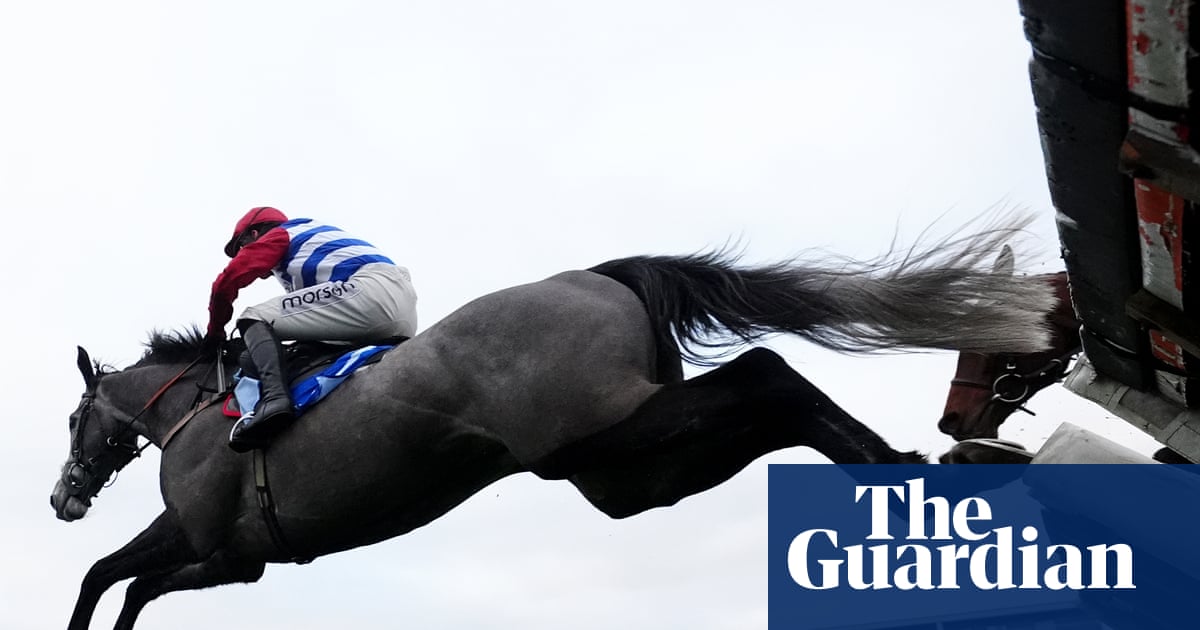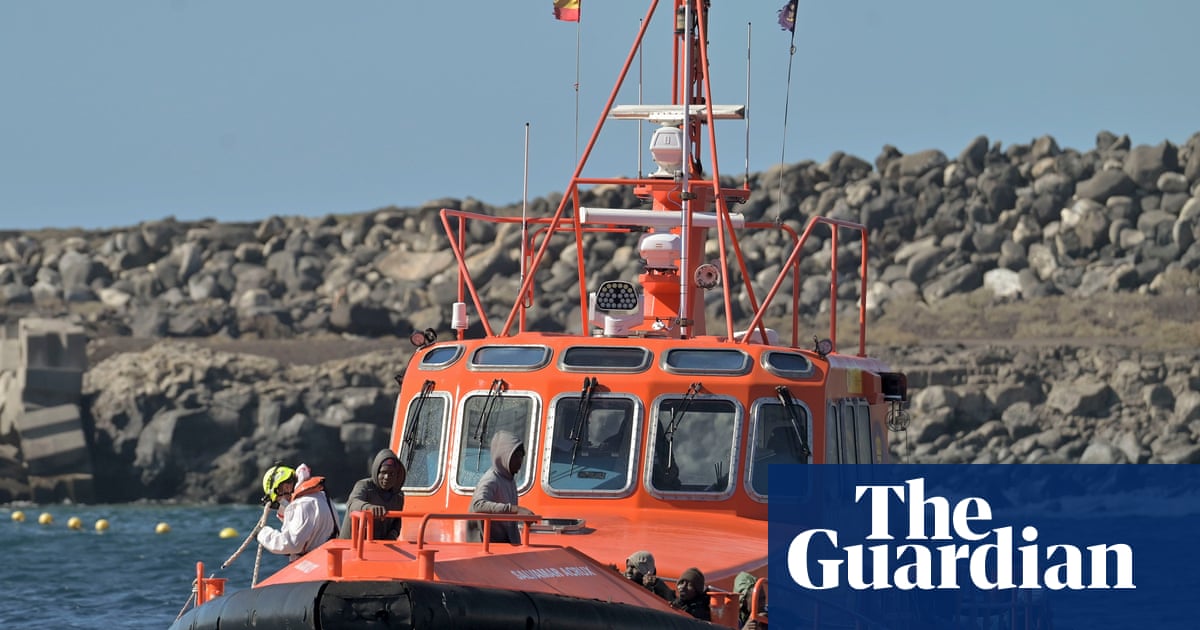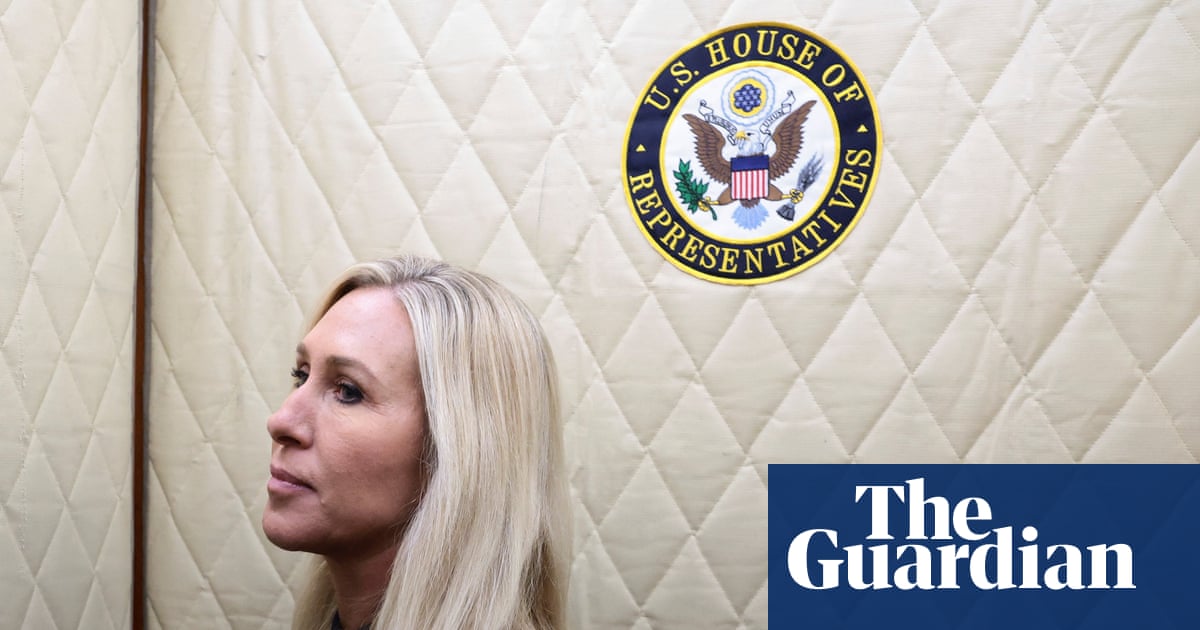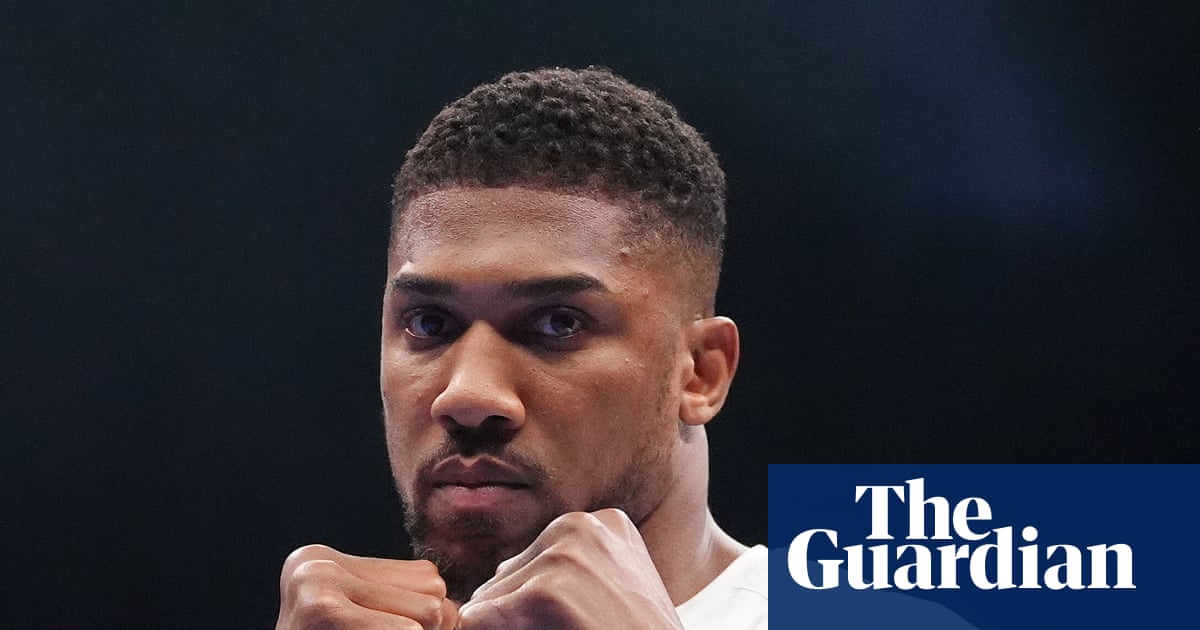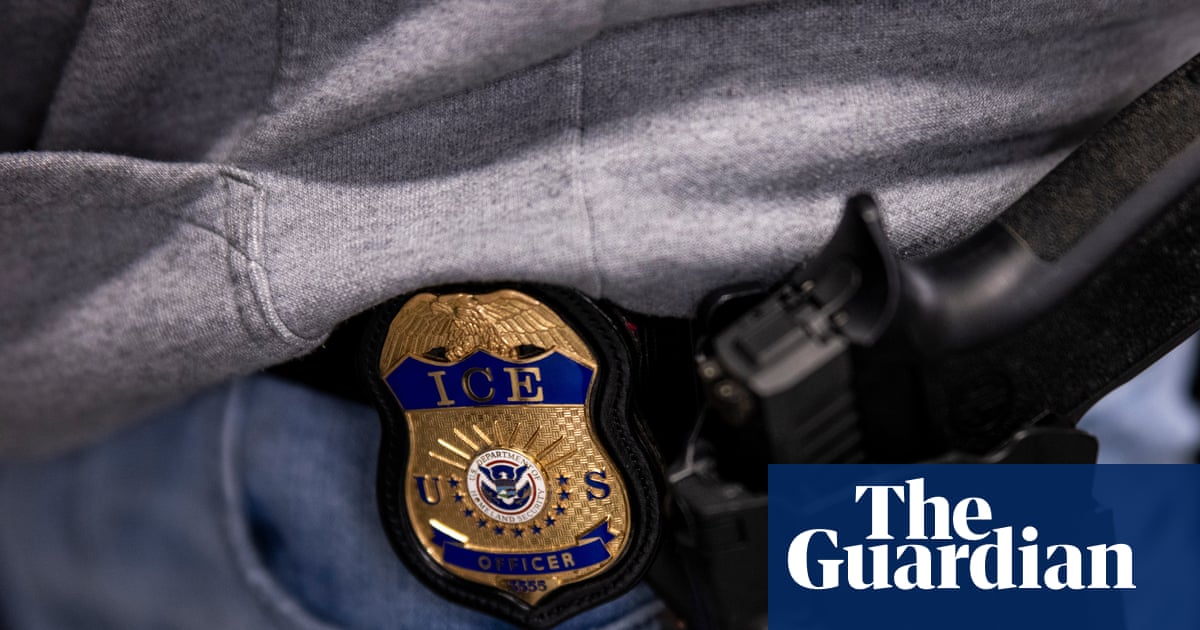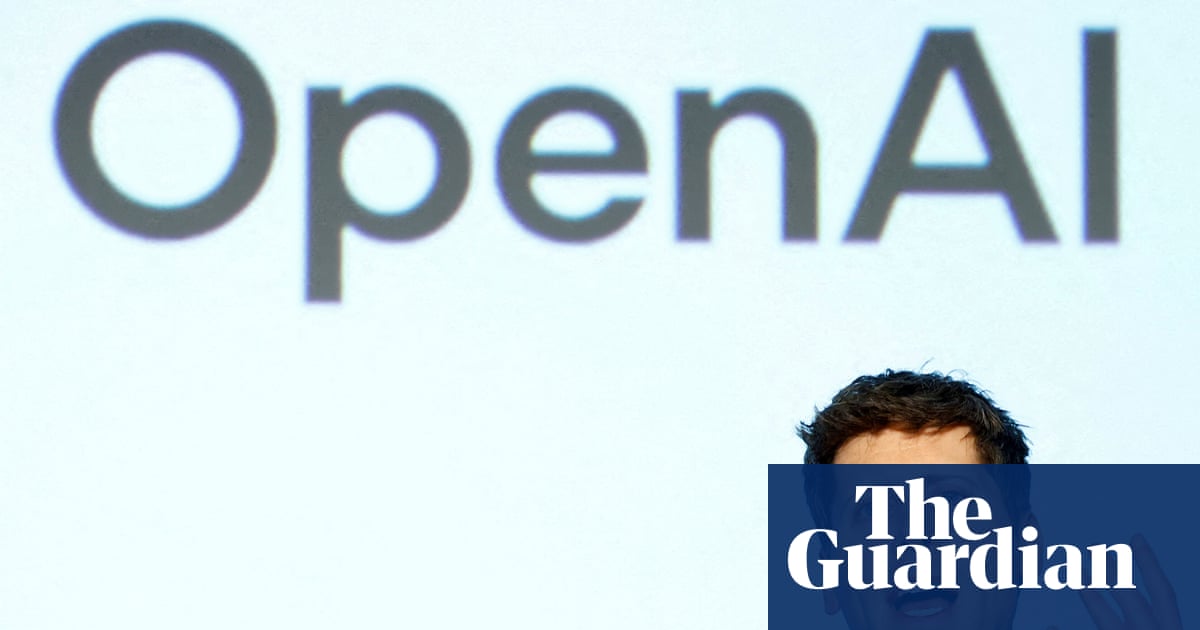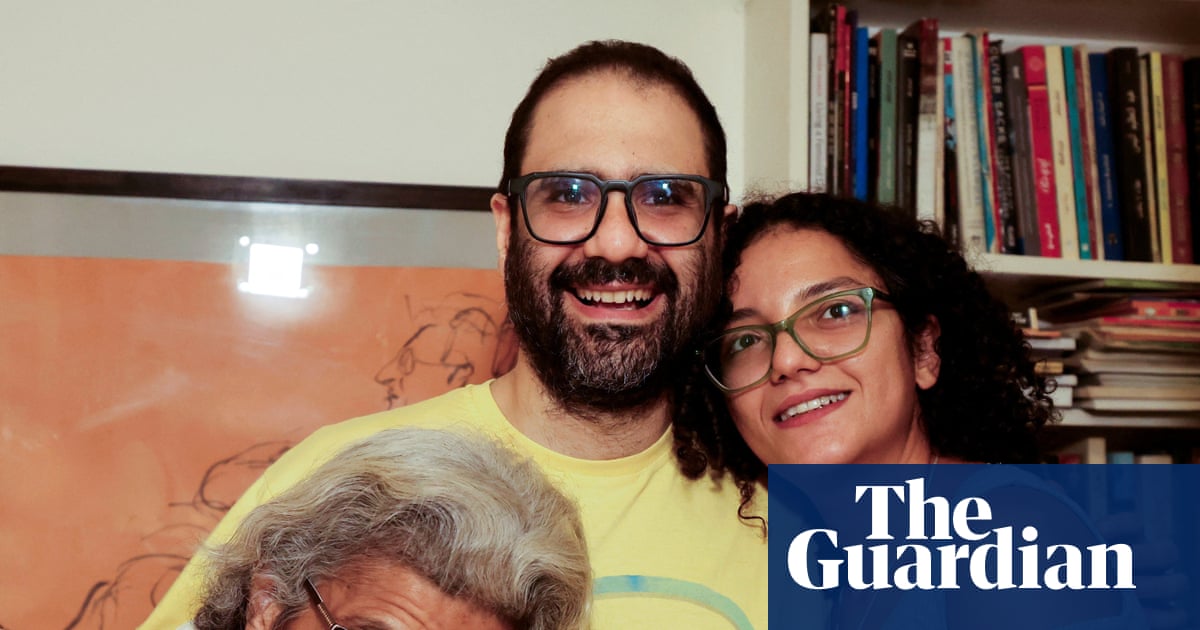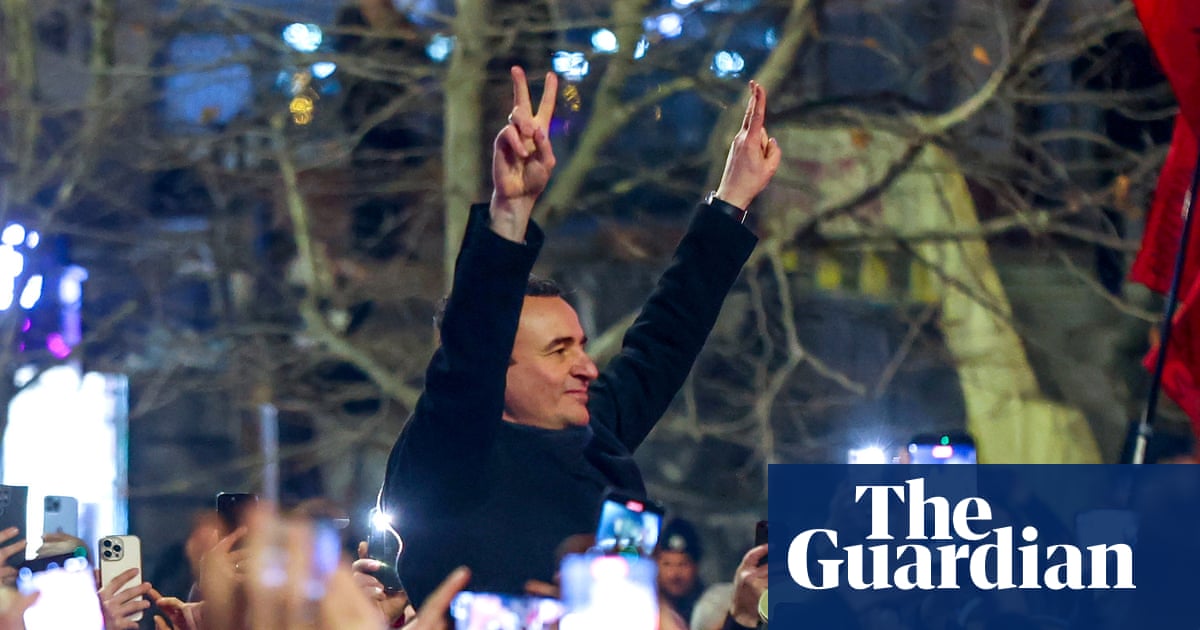Korean-American auteur Kogonada has until now been known for his intriguingly complex, cerebral essayistic movies, such as Columbus and After Yang, whose emotional content, though potent, isn’t immediately obvious. Now he has made the leap into a big, bold, primary-coloured romantic phantasmagoria, as if Chris Marker had remade The Umbrellas of Cherbourg for the American multiplex with two unfeasibly beautiful Hollywood stars. This is a musical without musical numbers (without its own musical numbers, anyway) and a romantic comedy mostly without comedy – an imbalance it shares with most romcoms in fact. The screenwriter is Seth Reiss, co-author of the (much chillier) drama The Menu, with Ralph Fiennes as a scary chef.
What Kogonada and Reiss are offering is a likably, if obtusely uncynical, heart-on-sleeve wish-fulfilment spectacular, which gradually retreats from its initial, borderline insufferable self-awareness. Or maybe it’s just that you get used to it. We are plunged into a woozy daydream as multicoloured as a ball pit in a kids’ play centre, all about love, relationships and the overwhelming importance of being open and risking emotional hurt to find the One. This involves coming to terms with your past and how you feel about your passionately remembered parents who are either dead or at any rate don’t tactlessly appear on screen in their present elderly form.
Margot Robbie and Colin Farrell play Sarah and David, two mind-blowingly attractive single professionals who meet and warily flirt at the wedding of mutual friends; when Sarah’s rental car breaks down afterwards, they wind up sharing David’s and go on a road trip together away from unhappy commitment-phobia and towards self-forgiveness and love.
But that’s not the half of it. The rental car agency, run by two uber-zany comedy characters played by Kevin Kline and Phoebe Waller-Bridge (the latter dropping F-bombs and doing a wacky German accent that she snaps out of while musing on how we all perform roles), has given David a special 90s vintage Saturn with its own mystical GPS which guides the couple to various magic doors in the landscape. They go through these to primal scenes of their past: to encounters with their respective parents, to a Canadian lighthouse where David once epiphanically realised he wasn’t having an epiphany, to a modern art gallery which Sarah’s late mother loved in her too-good-to-be-true way and which they now visit (for some reason) in the pitch darkness with a torch, to two separate hospitals which might somehow be the same hospital, and to David’s high school where he fell unrequitedly in love with his leading lady while performing in their Broadway-level production of How to Succeed in Business Without Really Trying, in the film’s best scene.
Kogonada’s previous film After Yang had distinct touches of Charlie Kaufman in its futurist drama about a family who have an intense emotional connection with the secondhand AI humanoid robot they buy as a companion-sibling for their adopted daughter. And this film, in its mainstream way, weirdly also has something Kaufmanesque as well … or almost. You might expect Kline and Waller-Bridge’s characters to be revealed as techno-sapien robots, as well as Farrell and Robbie and Kogonada and everyone involved with the film. But no.
When recognisably real things happen they stand out very sharply. Sarah, on a capricious whim at the wedding, asks David to marry her and, after a moment in which you think David is going to take her up on it, to indulge this fantasy, he appears to think better of it and instead says coldly: “You’ve destroyed some men, haven’t you …” And when Sarah and David arrive at David’s high school and Sarah realises everyone thinks David is the teenager he was then, she asks his drama teacher how old he thinks she is, and he replies “40” – an outrageously ungallant estimate which infuriates her. But there is also sweetness and charm, not disenchantment, in the breath-holding competition to which Sarah challenges David in the car – a game her mother liked.
The unreality of the film never quite equates to dishonesty about what exactly happens when two people not in the first flush of youth decide to be in love, but it takes an effort of will to suspend disbelief and submit to a well-intentioned fantasy.

 3 months ago
44
3 months ago
44


